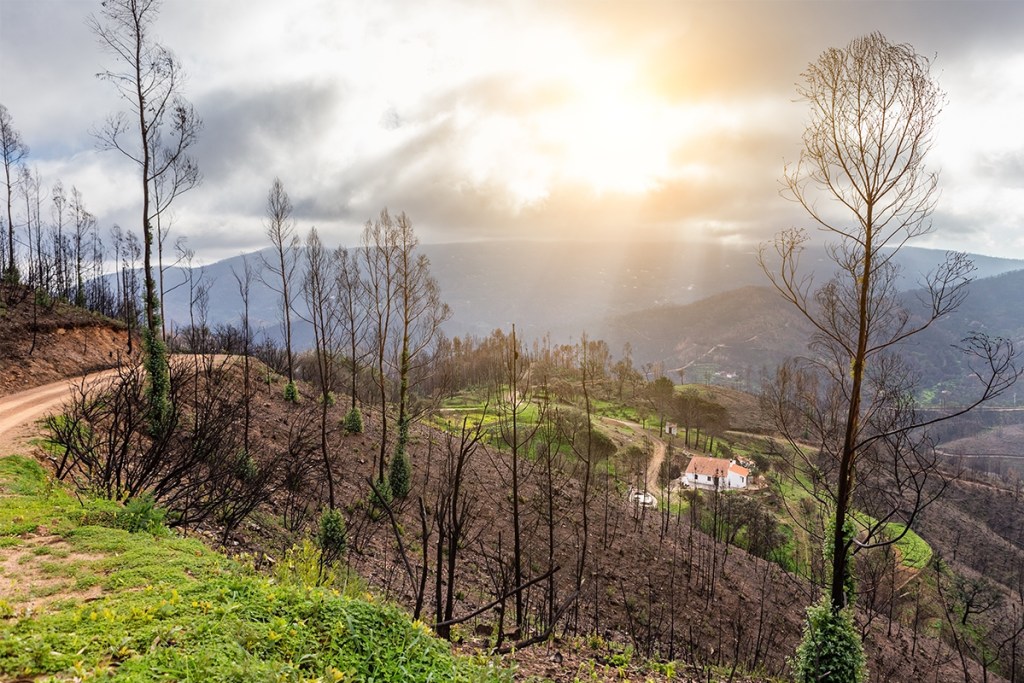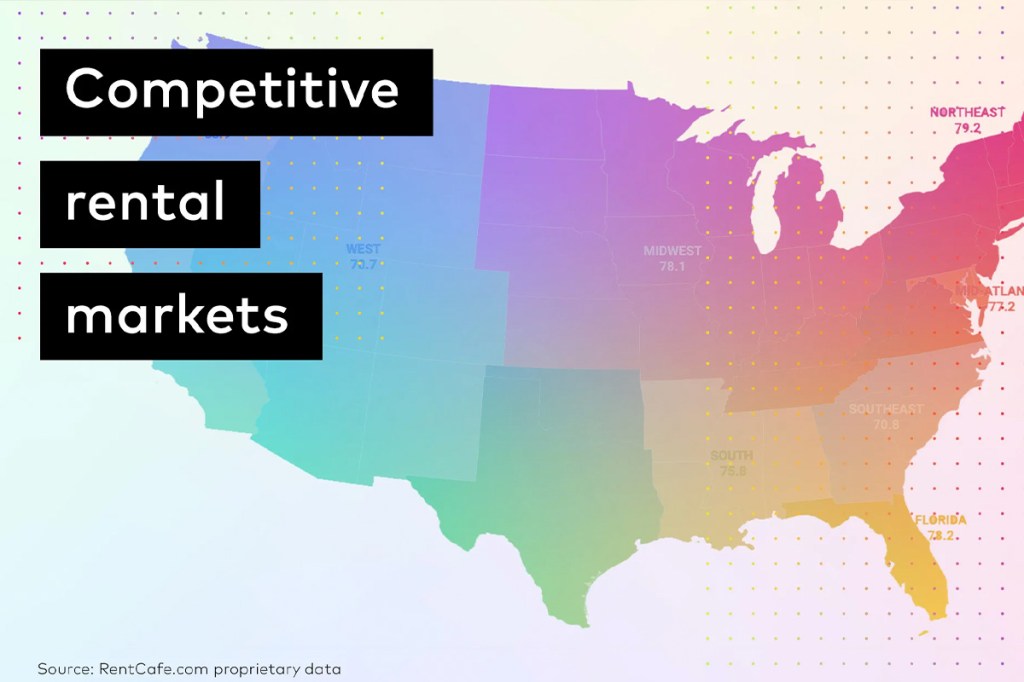Wildfire season can be a tough time for property managers, owners, residents, businesses and virtually everyone who lives in affected areas. And it’s not just California and the American West that are experiencing a rate and intensity of wildfires like never before.
We originally published this article in 2020, a particularly dry year in many fire-prone states. In 2021, the fire risk may be higher than ever, as California experiences its third-driest year on record. Here are some tips to help protect and fireproof your properties.

1. Create a fireproof, defensible space around the property
If you live within one of California’s State Responsibility Areas, you are required by law to create and maintain a “defensible space” around your property. This space must be clear of any natural growth or brush that could facilitate the spread of a wildfire.
Defensible spaces can be a good idea, even if you don’t live in California or you’re not required to make them. If fire season is a problem in your region, chances are it’s a bigger problem than ever before. Consider doing everything you can to protect your properties and the people who live there.
2. Make water sources available to first responders
Want to help first responders protect your property in the event of a fire? Connect a garden hose into available water lines and leave them connected during fire season. Fire departments will use any tools at their disposal.
Hydrants, ponds and pools can be used to fight fires. Make sure first responders have easy access these resources at all times.
Also, the curb around hydrants and fire access areas should be kept freshly painted so it’s clearly defined and easy to see.
3. Keep roofing & gutters clean
As part of your fall maintenance, gutters, roofing and lawns should be free of obstructions such as leaves and dead grass.
Gutter-cleaning may sound straightforward, but it’s surprisingly dangerous work. Ladders can slip or people can fall, especially when you or your maintenance team is leaning and reaching to clear out clogged gutter systems. The job can be kept safer with high-quality cleaning tools and ladder stabilizers. Even so, a professional contractor may be worth the additional cost of labor.
4. Build with the right roofing materials
Do you know the fire rating or your property’s roofing material? Roofs are classified as Class A, Class B, Class C or unrated. Class A materials are the most fireproof, and unrated materials offer the lease amount of fire protection.
It’s important to protect your property with Class A materials. The rating could apply to several types of material:
- Concrete
- Clay
- Fiberglass asphalt
- Metal
- Wood (if treated to meet Class A requirements)
A professional roofing service can provide the best consultation and options for your property.
5. Create an exit plan for your team & residents
One of the best ways to protect your community during wildfire season is to provide your residents with an exit plan in case of an emergency. This is something you can easily text or email via Yardi Breeze and Yardi Breeze Premier, which ensures the information never gets lost (and is easy to resend).
- Provide evacuation routes and nearby emergency shelters
- Ask residents to close windows and doors before evacuating
- Establish special roles for your team so residents know who to contact with questions
- Practice fire drills with your office
- Make sure emergency exit routes are posted around your property as required by law
6. Get insurance
Breeze and Breeze Premier makes it easy for you to provide renters insurance. Many property managers are able to sign renters up with our preferred provider, ResidentShield, during the online lease signing. This type of insurance does not cover your property from wildfire damage, but it does cover your residents’ belongings. It also provides temporary living expenses if the residence is uninhabitable due to a covered loss.
What about homeowners insurance?
It’s a mistake to try to cover your property with homeowners insurance. Owner-occupants, who homeowners insurance is meant for, face different risk factors (and pricing) than landlords.
Only the right landlord insurance policy can cover your property for wildfire damage. Make sure you’re properly covered so you never have to worry about facing a denied claim.
7. Help your residents put together an emergency kit
Get ahead of wildfire season by making an emergency kit. It doesn’t have to be a big, expensive endeavor. Everything you need, with the exception of your water, can probably fit in a medium-sized backpack or duffel bag. If you’ve ever been through a disaster before, you know that grocery stores empty out quickly. Finding food and water immediately after the disaster has happened can be difficult.
Emergency kit items that help you prepare for a natural disaster:
- Non-perishable food and water to last several days
- First aid supplies
- Flashlights and extra batteries
- Blankets, gloves, coats, etc.
- An emergency radio
- A copy of your escape plan and the locations of nearby emergency shelters
Disclaimer
This article is meant for informational purposes only and does not constitute nor replace legal counsel. Consult a professional service to determine the wildfire season readiness of your properties. And please approach fire safety with extreme caution. Wildfires that are hot enough and/or move quickly enough can easily thwart your best preparation efforts.



